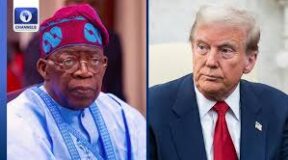22 African Women Who Have Served As Head Of State, President And Prime Minister Since 1970
OpenLife Nigeria reports that the role that women should play in shaping Africa’s present and future was a key theme from speakers of the Women Heads of State Initiative, co-convened by Africa.com and Coca-Cola Africa.
The event introduced the world to the 22 women who have served as president or prime minister of an African country, five of whom spoke at the event.
The virtual event comprised talks from current and former female heads of state, as well as thought leaders, who drew a picture of where African states should be focusing on if they want to move the continent forward.
Pushing for equity in women leadership in government
Liberia’s former president Ellen Johnson Sirleaf was one of the notable leaders at the event. Her take on the legacy she built in her country, at a time when women in African politics was still a novel idea, brought the audience into some of her decision making when at the helm. On her reflections of the role that the female electorate plays in shaping discourse and policy she said, “women’s leadership and decision makers must come from the people who are affected by those policies. It should be women at the bottom who dictate those policies.” Former Malawi President Joyce Banda praised Africa for championing women decision-makers in the highest spheres of government. In her remarks she said Africa had a good story to tell in key priority areas, such as reducing maternal mortality, bringing more girls into the schooling system and setting up initiatives that identify women leaders in the executive, judicial and legislative sectors of African countries. However, she noted that keeping women in these roles has been the challenge that the continent needs to resolve.
A platform for sharing lessons about the continent’s advancement
Namibian Prime Minister Saara Kuungonelwa-Amadilha’s session looked at how creating robust government policies to harness the continent’s natural resources would be the driver for economic change, among women and youth. “To realise these benefits, we need to optimize the management of our natural resources through effective governance, promote skills amongst our young people, for them to drive the development and participate in harnessing the natural resources that we have and also benefit from them, as well as to promote the industrialization through value addition of our natural resources,” she said “We need a total rehaul of Africa’s agricultural system”
One of the threads that ran through each speaker’s session was how Africa’s growth prospects could not be achieved if women remained at the bottom of the food chain.
Former President of Mauritius, Ameenah Gurib-Fakim looked at the role that the youth and particularly young women can play in agribusiness. She said the stereotypical image of women carrying children on their backs and toiling the land could be replaced with women as drivers of agribusiness, if technology and technical transfer of skills was done properly. She said Africa has the potential to become the breadbasket of the world if the continent’s traditional food stuffs, such as teff and sorghum (all dubbed superfoods by nutritionists) were properly farmed to alleviate chronic hunger and poverty in many rural communities across the continent. By taking full advantage of the African Continental Free Trade Area policies, agribusinesses would be able to provide sustainable incomes for communities and unlock other sectors in the value-chain. An initiative that has taken shape in Malawi through Banda’s grassroots initiative of helping women tap into the economic benefits of farming chilli peppers, by getting the right price for their produce and developing sustainable agribusinesses. “As former presidents once we have left office, we need to still be hands on with the people to transform their lives and realise their full potential, “she said.
African women heads of state
The event also paid tribute to 22 African women heads of state who held the position of president or prime minister since 1970 in a short documentary released for the first time at the Summit.
Africa.com defines Women Heads of State as women who have served as president or prime minister, including Heads of State and Heads of Government. Women must have been elected or appointed since 1970 and served for a minimum of three months. Female monarchs are not included. Africa.com’s research identified 22 women who meet this criteria and have listed them in order based on the length of time in office.
1. President Ellen Johnson Sirleaf, Liberia, January 2006 – January 2018
2. Prime Minister Saara Kuugongelwa-Amadhila, Namibia, March 2015 – present
3. Prime Minister Luísa Dias Diogo, Mozambique, August 2004 – January 2010
4. President Sahle-Work Zewde, Ethiopia, October 2018- present
5. President Ameenah Gurib-Fakim, Mauritius, June 2015 – March 2018
6. President Catherine Samba-Panza, Central African Republic, January 2014 – March 2016
7. President Joyce Hilda Banda, Malawi, April 2012 – May 2014
8. Prime Minister Maria das Neves Ceita Baptista de Sousa, São Tomé and Príncipe, October 2002 – September 2004
9. Prime Minister Mame Madior Boye, Senegal, March 2001 – November 2002
10. Prime Minister Rose Christiane Ossouka Raponda, Gabon, July 2020 – present
11. Prime Minister Victoire Sidémého Dzidudu Dogbé Tomegah, Togo, September 2020 – present
12. Prime Minister Elizabeth Domitien, Central African Republic, January 1975 – April 1976
13. Prime Minister Cissé Mariam Kaïdama Sidibé, Mali, April 2011 – March 2012
14. President Samia Suluhu Hassan, Tanzania, March 2021 – present
15. Prime Minister Aminata Touré, Senegal, September 2013 – July 2014
16. Prime Minister Maria do Carmo Trovoada Pires de Carvalho Silveira, São Tomé and Príncipe, June 2005 – April 2006
17. Prime Minister and President Agathe Uwilingiyimana, Rwanda, July 1993 – April 1994
18. Prime Minister Robinah Nabbanja, Uganda, June 2021 – present
19. Prime Minister and President Sylvie Kinigi, Burundi, Prime Minister from July 1993 – October 1993 and President from October 1993 – February 1994
20. President Agnès Monique Ohsan Bellepeau, Mauritius, March 2012 – July 2012 and May 2015 – June 2015
21. Prime Minister Najla Bouden Romdhane, Tunisia, October 2021 – present
22. President Rose Francine Rogombé, Gabon, June 2009 – October 2009







